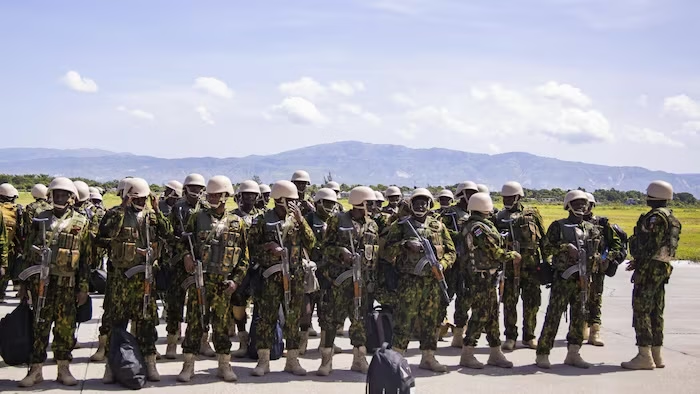On Saturday, January 18, 2025, approximately 300 Kenyan police officers arrived in Haiti to join the Multinational Security Support Mission (MSSM), aimed at restoring order in the crisis-stricken nation. The officers were welcomed during a ceremony at Toussaint Louverture International Airport, attended by Haitian and international dignitaries, including Presidential Advisor Fritz Alphonse Jean, Secretary of State for Public Security Mario Andréaol, and Director General of the Haitian National Police Normil Rameau. Prime Minister Alix Didier Fils-Aimé, along with ambassadors from Canada and the United States, were also present to mark the occasion.
The Kenyan contingent bolsters the multinational effort focused on neutralizing armed gangs that have entrenched themselves in Haitian communities. However, the mission faces considerable challenges, compounded by hesitation among some foreign officers. Personnel from Jamaica, Guatemala, and El Salvador have reportedly expressed concerns about their preparedness and authorization to undertake complex operations, which has at times limited the effectiveness of interventions on the ground.
Despite these hurdles, the mission’s primary goal remains the dismantling of armed groups that perpetuate violence and insecurity across the country. The criminal networks have grown increasingly organized and aggressive, presenting significant challenges to law enforcement and the multinational force.
International support, including the deployment of Kenyan police officers, is seen as crucial for achieving any semblance of stability in Haiti. Earlier this month, two additional units—150 Guatemalan officers and 8 Salvadorian officers—arrived in Port-au-Prince on January 3 and 4, respectively. Kenyan forces, however, are taking on a more prominent role in direct operations, working closely with Haitian police to combat gang-related violence.
The Multinational Security Support Mission now comprises 590 police and military personnel, marking a 36.5% increase in strength. The contingent includes 400 Kenyans, 150 Guatemalans, 8 Salvadorians, 24 Jamaicans, 6 Bahamians, and 2 Belizeans. Their combined efforts are critical to addressing Haiti’s deepening security crisis.







